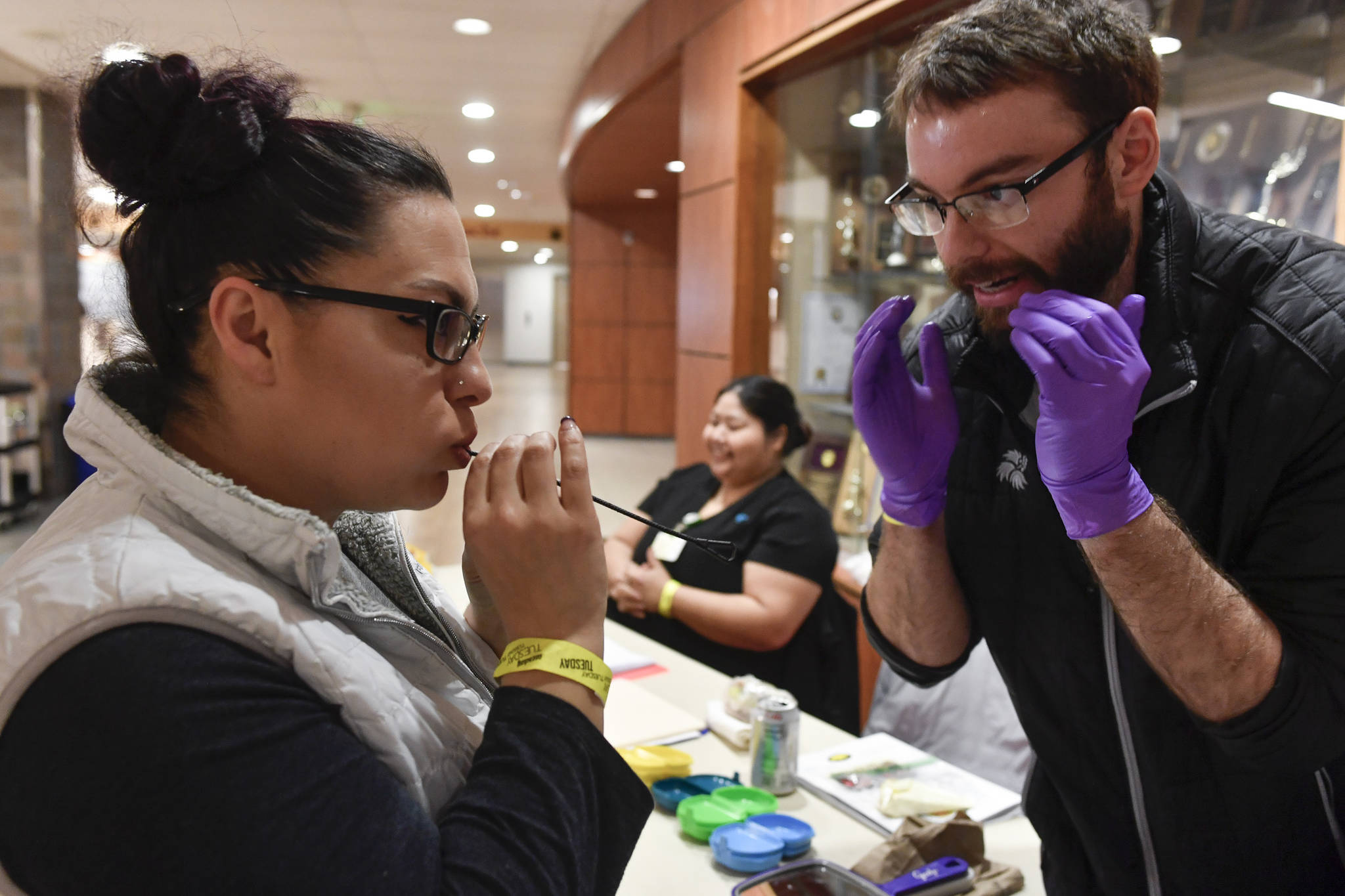This is Barbara Jean Johnson’s fifth Gold Medal Basketball Tournament, and she’s doing something a little different this year: wearing a mouthguard.
Johnson, who plays for Yakutat, said it wasn’t even her idea. Her daughter had seen a player’s teeth get knocked out in an earlier game and had directed her mother to a new program that supplies Gold Medal players with mouthguards.
“One of the players from Yakutat kind of got his teeth busted in game one,” Johnson said, “and my kid doesn’t want me to get my teeth busted out.”
Dr. Rochell Burke, shook her head as she spoke about the player who had his teeth damaged on the tournament’s opening day. Burke and fellow Southeast Alaska Regional Health Consortium (SEARHC) dentist Dr. Jordan White put together a program this year that supplies free mouthguards to Gold Medal players if they want them.
[Game Schedule, Brackets and More: Read our Gold Medal 2019 Special Section here]
Burke and White are second-year residents at SEARHC through NYU Langone, and as part of their residency they’re required to put together a service project. After working in Southeast for more than a year, they’d heard all about Gold Medal and wanted to get involved in the annual tournament.
Many athletes don’t think much about taking care of their teeth, Burke said, until something bad happens to them. The reality is, an athlete’s mouth is vulnerable during games and a mouthguard can make a huge difference.
“Any sort of trauma can really concuss the teeth in a way that makes the nerve kind of die in a way,” Burke explained. “With that added protection, you’re hopefully taking away that risk. Unfortunately, the idea is that people don’t need it until it happens to them, so we’re trying to convince people, ‘This is a big thing. Don’t lose teeth that you don’t need to lose.’”
There are about 250 people who play Gold Medal, and only about 30 or 40 of them signed up for a mouthguard in advance, Burke said. They were hoping for more, but they found it more difficult to get the word out through the villages that this program existed.
[Follow along with the action on our Gold Medal live blog]
During the tournament, they’ve still been making mouthguards for people, including Johnson, who make the decision mid-tournament to get one. All of these, ordered beforehand or during the tournament, are free of charge.
Leticia Katzeek, a dental assistant for SEARHC, has been helping distribute the mouthguards and said the ability to get this protection to players for free is a big deal.
“I think it’s pretty great,” Katzeek said. “I heard it’s a little spendy, like a few hundred dollars to get one, and for there to be a program where people have the opportunity to benefit from something like that I think is good.”
Burke and White hope this program can continue in future Gold Medal years. They’ve put together a survey for players to fill out so they can figure out just how many oral and facial injuries there are during the tournament. They’ll then use this data to advertise the program next year.
Many of the players across all four divisions are sporting the multi-colored SEARHC mouthguards. Burke said the player from Yakutat who broke his front teeth at the outset of the tournament ended up signing up for a mouthguard.
“He unfortunately learned the hard way, and I think that’s how most people do because in sports, you don’t think it’s going to happen to you until it does,” Burke said. “We want to get the message out that we don’t want you to wait until then.”
• Contact reporter Alex McCarthy at amccarthy@juneauempire.com. Follow him on Twitter at @akmccarthy.

